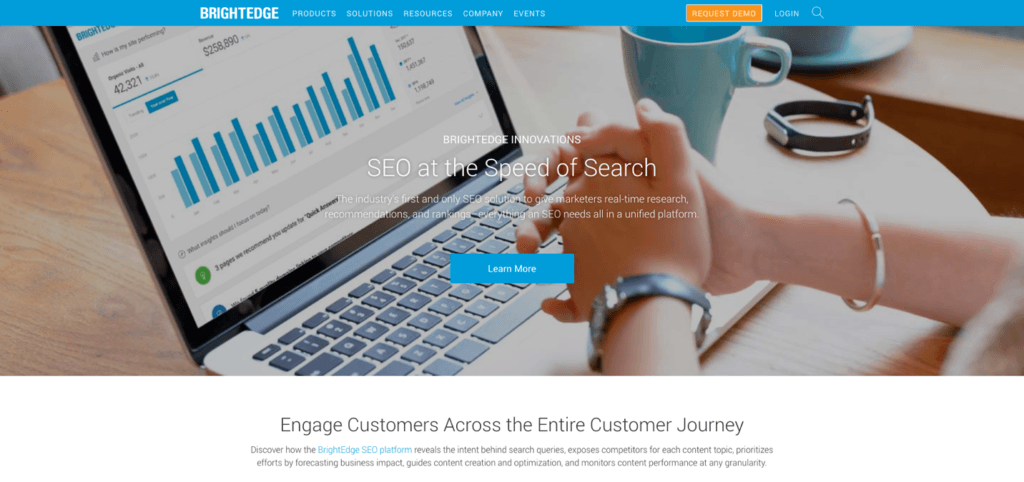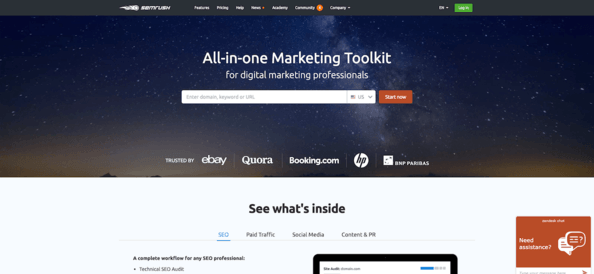BrightEdge vs SEMrush
In the past we looked at BrightEdge vs. Conductor. In this post, we examine how SEMrush compares to BrightEdge and how MarketMuse differs. In the world of content marketing, improving search engine rankings is always top-of-mind. But in this environment, you need more than a tricked-out SEO dashboard.
BrightEdge is a search engine optimization platform aimed squarely at the Enterprise level. The platform targets SEO professionals, digital and content marketers, providing tools for search, content social media, local and mobile.
BrightEdge works quite well for rank tracking. You can monitor pages and keywords to see how you are performing in organic search.
Keyword reporting provides data including search volume and ranking position so marketers can conduct competitor analysis and focus on the most valuable keywords.
BrightEdge offers an automated site audit platform called ContentIQ, plus DataCube, a dataset of over 3 billion keywords and DataMind, an AI deep learning platform.
Price information is not provided on their website as it’s done on a quote basis. However, you can expect pricing to match its intended market. In other words, it’s not cheap.
BrightEdge Limitations

Content marketers who enjoy having lots of data will not be disappointed with BrightEdge. However, the main platform is set on top of their DataCube and doesn’t employ any AI components in their core offer.
There is no underlying underlying semantic similarity technology powering their content recommendations. As a result, what you really get are on-page optimization suggestions (metas, H tags and body content). This advice is based on a limited analysis of the top 10 results.
The MarketMuse Advantage
MarketMuse offers AI-driven content plans, content briefs, and a suite of applications purpose-built for content strategists.
SEMrush

The company has a well-known keyword research tool targeting small to mid-sized business. They aim to be an “all-in-one marketing toolkit” and offer a number of features that appeal to SEOs.
SEMrush pricing varies starts at $99.95 monthly, with a free trial period of seven days. Those who need access to historical data and extended limits can expect to pay more, as can those who require white label reports, API access and Google Data Studio integration.
The platform is divided into a number of sections for conducting competitive analysis, rank tracking, keyword research, link building, rank tracking, performing a site audit and technical SEO.
SEMrush Limitations
Reports indicate that SEMRush’s data quality and user experience leave something to be desired. The keyword difficulty metric appears to be link-based, failing to account for the many other important ranking factors. At this time, SEMRush SEO Content Template does not offer much value for content strategists.
The MarketMuse Advantage
MarketMuse offers AI-driven content plans, content briefs, and a suite of applications purpose-built for content strategists.
Summary
There’s no doubt that backlink analysis, backlink tracking and monitoring your position in the SERP is an important part of digital marketing. But even the best SEO dashboard can only get you so far in the fight for organic traffic. While Google has gone beyond its keyword orientation to focus on semantics, most marketing tools have not.
Stephen leads the content strategy blog for MarketMuse, an AI-powered Content Intelligence and Strategy Platform. You can connect with him on social or his personal blog.